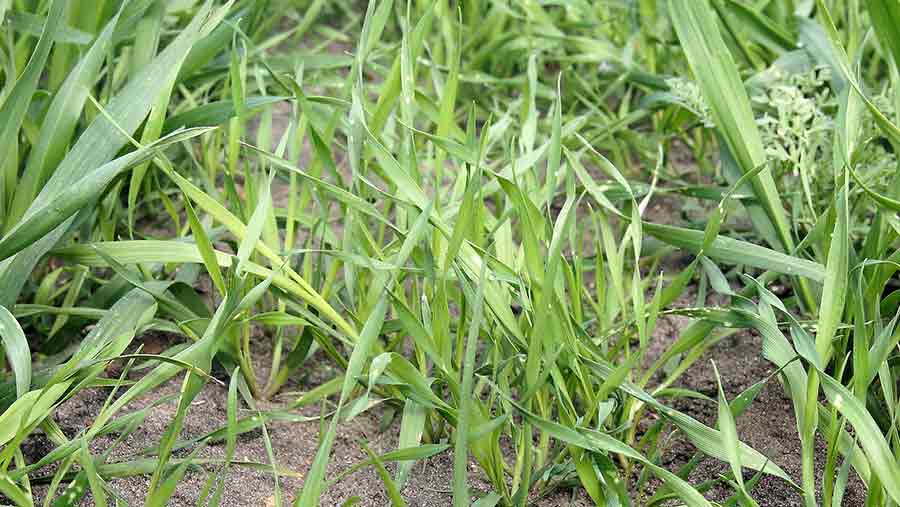Battle against sterile brome gets increasingly difficult
 © Blackthorn Arable
© Blackthorn Arable Effective control of sterile brome is becoming increasingly difficult in winter barley in parts of the country as widespread as Hertfordshire, Dorset, and Yorkshire.
The information was released yesterday (12 December) as part of the Autumn 2016 Arable Crop Report from AHDB Cereals & Oilseeds.
See also: How to identify different brome species
There are several herbicides on the market that will control bromes in cereal crops up to GS24-33, including Broadway Star (pyroxsulam + florasulam) and Atlantis (mesosulfuron + iodosulfuron). So far there are no reports of herbicide resistance in UK brome.
However, according to the report bromes are generally less susceptible to herbicides than other weed species, and therefore more difficult to control.
Farmers across the UK have been reacting to the difficulties they’ve been having through the season on Twitter.
Mmm not sure 2 Lts ha of Roundup was enough to do this brome,done a cracking job on the volunteer OSR. pic.twitter.com/ECGgVLOT5g
— Malc Parr (@tractorman07) September 3, 2016
So much for ploughing being the answer to brome or slugs for that matter or slugs for that matter…..going to be a tough Autumn pic.twitter.com/dfBD9jzXsF
— Louis Mc Auley (@LouisMcAuley) October 3, 2016
Hitting the reset button on some land that brome got the better of us on pic.twitter.com/vsFfMJlCR8
— Olly harrison (@agricontract) November 2, 2016
Slugs prefer the radish anyway. This small patch of brome and volunteers smothered the cc. It got some Falcon but too late. pic.twitter.com/uEFPWzWgML
— Darragh Cleary (@darscleary) November 18, 2016
No herbicide resistance yet
The situation in the UK is more encouraging than overseas, with reports in mainland Europe and Australia of resistance in brome populations to certain herbicides, including glyphosate. There is concern that poor control in the UK may in time lead to the evolution of herbicide resistance.
Overall, the report highlighted that the autumn drilling window was largely positive, with prolonged periods of dry weather during the peak drilling season of October allowing timely establishment.
Crops generally got away well, apart from in the drought-affected land in Essex, Hertfordshire, Bedfordshire, and Cambridgeshire, where up to 70,000ha of oilseed rape crops failed because of either the dry weather or damage from cabbage stem flea beetle.

